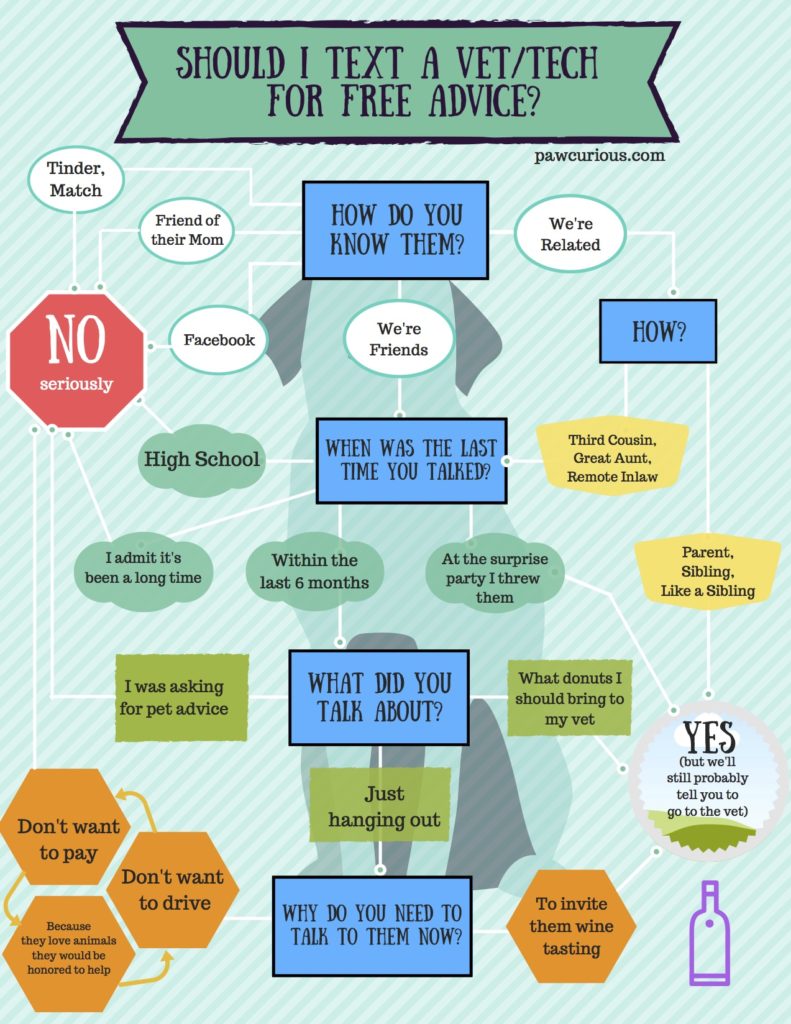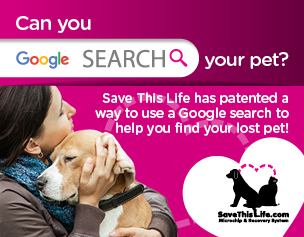What Do I Do When My Friends Want Free Advice?

Technology hasn’t done vet technicians any favors when it comes to friends. Sure, it’s helped us connect with some really great friends. But a lot of those other friends are Facebook acquaintances or people from high school you haven’t talked to in a decade.
What do they want? Free advice.
Free Advice: Professional vs. Personal
Medical professionals of all stripes suffer with the dilemma of setting boundaries between the personal and professional. You may want to keep them separate, but many of your so-called friends won’t let you. And, thanks to texting, Facebook, Twitter and even Tinder, the problem has become worse.
As soon as someone discovers you’re in the veterinary field, you suddenly become their best friend...but, for some, only if it’s to their advantage.
“The disdain we carry from knowing that we are often times being used for free advice by people on social media who ‘know we’re vets’ and rarely get a simple thank you for suggestions that were made is depressing,” noted the author of the Octrivet blog.
“I’m on a few veterinary Facebook groups, and the sorts of behaviors they post about still keeps my jaw dropping. Potential paramours who connect with them on dating sites for the purposes of sending them a photo of their dog’s leg (I guess it could be worse?), friends of friends of friends texting at 2 am for an emergency ear infection, high school nemeses extending the olive leaf of Facebook friendship and then, without so much as a ‘how have you been these last two decades?’ asking for discounted heartworm meds,” wrote Dr. Jessica Vogelsang on Pawcurious.
Setting Boundaries between the Professional and the Personal
Vogelsang, who goes by the moniker Dr. V, published this helpful and humorous infographic to give direction to the clueless:

However, it’s unlikely your pseudo-friends will bother to read it and even more unlikely they’d understand it’s targeted toward them.
So what’s a veterinary professional to do? Here’s some advice:
#1 Consider your value.
You spent time, money and effort to become an expert in your field. When someone asks you for free advice or treatment, they’re devaluing all that time, money and effort. If they truly valued your expertise, they would pay for it.
#2 Establish boundaries.
Decide whether you’ll give advice at all and, if so, when and to whom. You may be quite willing to help Uncle Roger with advice on his cat’s obesity problem but prefer to deal with it professionally if he keeps calling you on the weekends or if his cat develops diabetes.
For those who don’t get the message when you tell them, you may want to send them Dr V’s hint. If any of your friends call you out, they’re probably not your real friends anyway.
#3 Blame something else.
If you’re hesitant about turning someone down, tell them your practice would be liable for any advice you give, and the practice’s insurance agent has told you that you’re only permitted to give advice in the office. You may want to talk to the veterinarian to ensure they’ll back you up...just in case.
If you don’t want to go in-depth, you can cite a recent legal case where an architect was held liable for her free advice on a landscaping project.
#4 Learn to say “no”.
Women, especially, are bad about saying no, but it’s a skill everyone should learn. If you never decline to participate, you won’t have time to spend on your priorities.
#5 Reframe the conversation.
If your “friend” tries to make you feel guilty about not helping their pet, ask them why they don’t think enough of their pet to get proper veterinary care. Feel free to point them to local agencies who help indigent pet owners.
You can also reframe the guilt angle by asking them why they want you to lose your job by giving them advice.
#6 Identify the users.
If you’re one of those people who always thinks the best of others, congratulations! You’re a good person. But while nice guys don’t always finish last, nice guys do frequently get used by people who pretend to be their friends to get something from them.
Learn to spot a fake friend. One of the key clues is that they expect you to cater to their needs.
#7 Don’t forget family.
Family members commonly cross boundaries just because they can. After all, it’s almost impossible to tell your mother to bring her beloved cat in during office hours when she calls you in the middle of the night.
However, your second cousin or uncle shouldn’t receive the same treatment. Decide which family members you’ll help and under what circumstances.
Your Covetrus North America representative can provide other tips and suggestions of value to you! Contact us at 855.724.3461.Sources:
http://pawcurious.com/2017/06/is-it-ok-to-text-a-vet-friend-for-free-advice/
https://thoughtcatalog.com/adrian-manuel/2014/11/7-ways-to-spot-a-fake-friend/

Working Here
Our team members are encouraged to be the best they can be... at Covetrus we believe we impact one another.
Learn MoreNews & Events
FDA Cautions Pet Owners Not to Feed Texas Tripe Inc. Raw Pet Food Due to Salmonella, Listeria Monocytogenes
The U.S. Food and Drug Administration is cautioning pet owners not to feed their pets any of the Texas Tripe brand raw frozen pet food listed below because several samples of Texas Tripe raw pet food have tested positive for Salmonella and/or L. mono.
Careers
Are you looking for a place to let your talents shine? At Covetrus, we help our practitioner customers better serve their patients and take pride in providing the best customer experience possible. Search our open positions to see our available opportunities.
Newsletter
Stay current with what’s going on with Covetrus, subscribe to receive our newsletter and email communications. Subscribers will receive the latest information in practice management, sales and marketing, animal health, and more.



-3-(1).png?sfvrsn=2d806d73_0)

Leave a comment